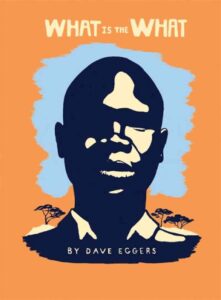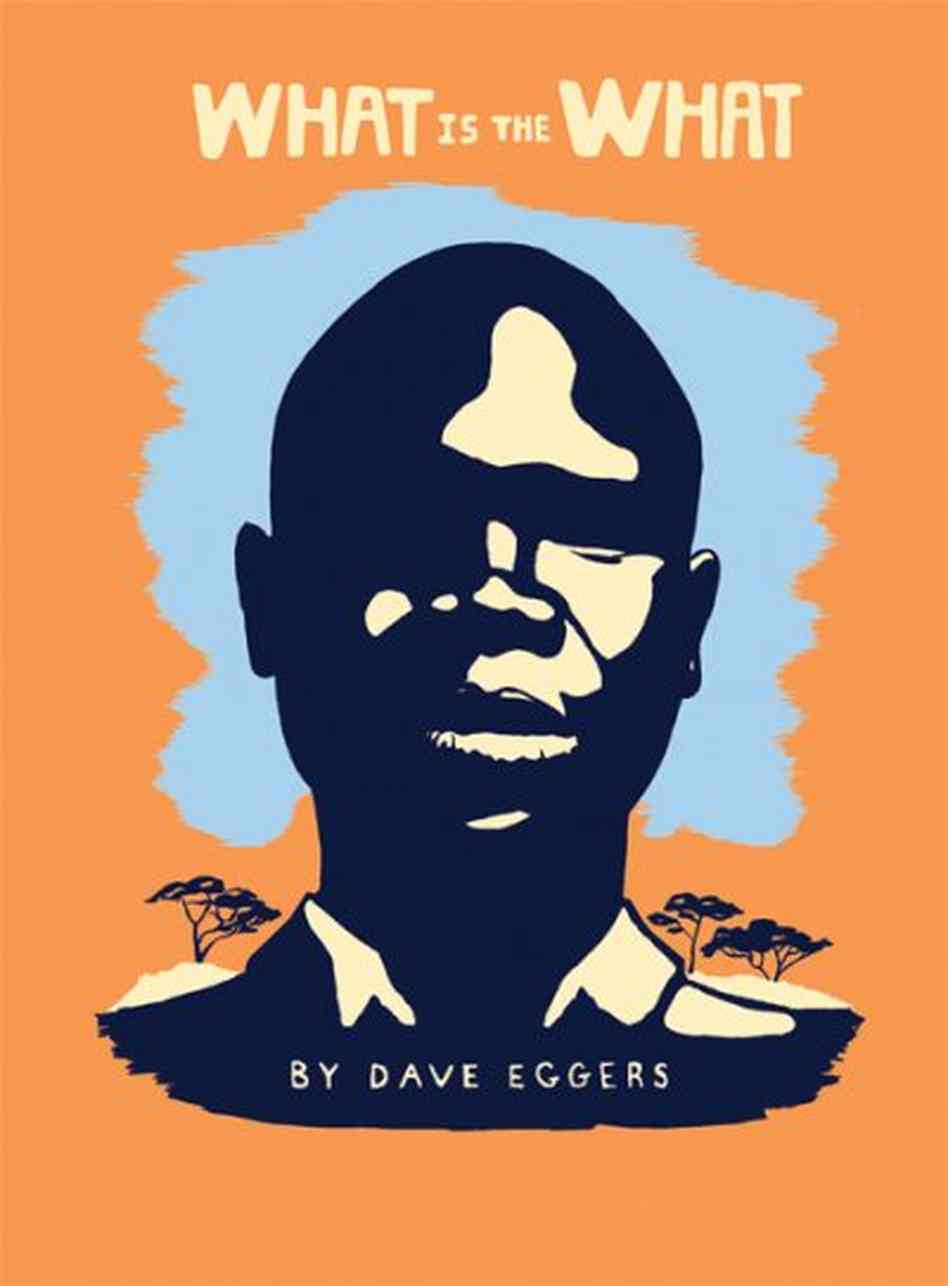
Author: Dave Eggers
Publication Year: 2006
Length: 475 pages
I knew about as much about Sudan prior to reading this book as I know about Euclidian geometry. Sure, I had a vague recollection of both lingering somewhere in my head, but to recall the facts and figures would have been completely impossible. Of course I had heard little snippets about Darfur, and read about genocide and starvation, and remembered the Ethiopian jokes from the 80s, but I certainly couldn’t point to Kenya on a map, and had no knowledge of the history or proliferation of Islam in Africa at all. So this book is as much of a history and social studies learning experience for me as it was a novel about a man’s life. There are times where Eggers clearly knows that he will have to explain certain situations in Sudan, the history behind them, and who the players were in the government, the rebellion and the surrounding world. To someone coming in with an intimate knowledge of the facts of the area, I would imagine some of this stuff would seem kind of condescending or sophomoric. It’s the movie equivalent of the detective finally figuring out who dunnit, and then showing the audience, through a series of quick clips from the past two hours, exactly where the pieces fit into place. It’s kind of silly, but as I had no knowledge of the events leading up to our protagonist’s dilemma, this kind of contrived filling-in of the events really did help me to understand what the hell was going on. Eggers tells the story in the voice of his subject, Valentino Achak Deng. Deng spends the book in the present telling his story in flashbacks to random people who cross his path over the course of a day in Atlanta. He doesn’t actually tell his story to them, but conveys the story as if he’s telling them, educating them in his head. It’s a curious way to tell a story, but it’s Eggers, so we couldn’t expect a completely straightforward approach. His tales of leaving the war torn Sudan first for Ethiopia, then Kenya, and finally the U.S. is filled with violence, brutality and death (as one would expect), but is told in a matter of fact manner that is surprisingly sober for an Eggers book. I kind of expected the fish out of water thing, with Deng mixing up his English and lacking self-awareness in an attempt to soften the tale somewhat, but Deng is portrayed as a very intelligent and thoughtful narrator who at points questions God’s existence and calls everything he believes into question. How else to explain the devastation he has witnessed? Again, the book wasn’t at all what I expected (and was much longer than I originally thought as well), but even though I thought that I was tired of it after 120 pages and then 310 pages and again after 460, I found myself deeply caring for what happened next in this man’s life, and truly horrified at the situation that he and the other Dinkas of Sudan were thrust into not only by the Muslim leaders of their country, but by their own rebel army as well. So don’t pick this thing up thinking that these “Lost Boys” are a couple vampires hanging out on the Santa Cruz boardwalk, because unlike those bloodsuckers, these killers are real. I do still harbor some confusion, though, over the authenticity of Deng’s story (and of the man himself), as Eggers has a talent for really skewing fiction and non-fiction, and because this thing is called a novel and not a memoir or a biography, I’m a little dubious to some of the claims. I’m too lazy to look the stuff up on Wikipedia, though, so I’ll just go with Valentino’s version and hope upon hope Eggers isn’t just fucking with us.


